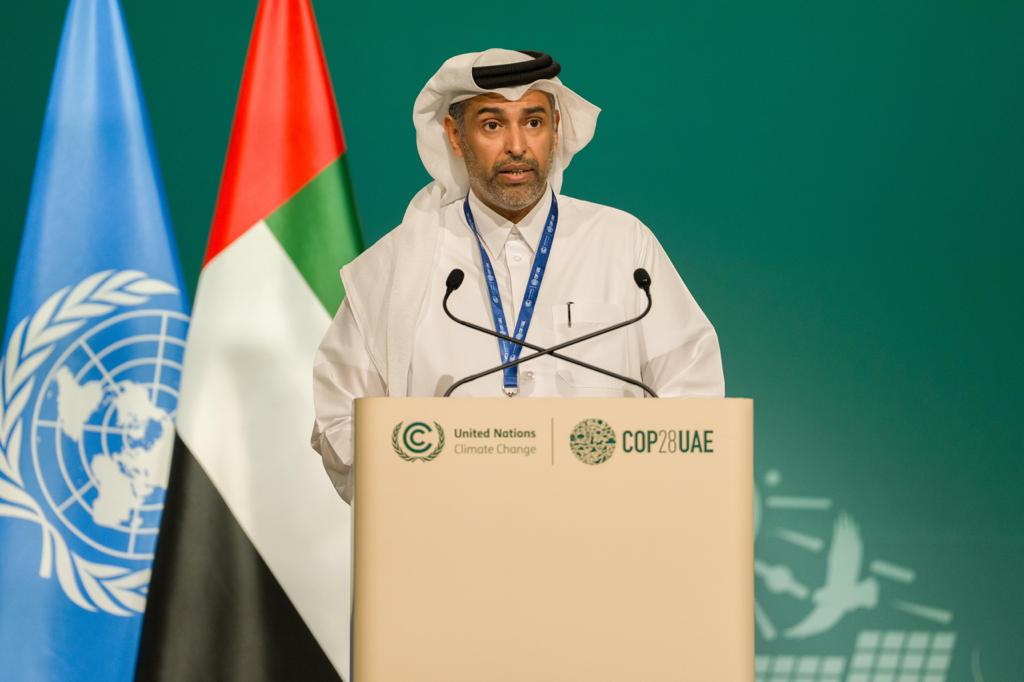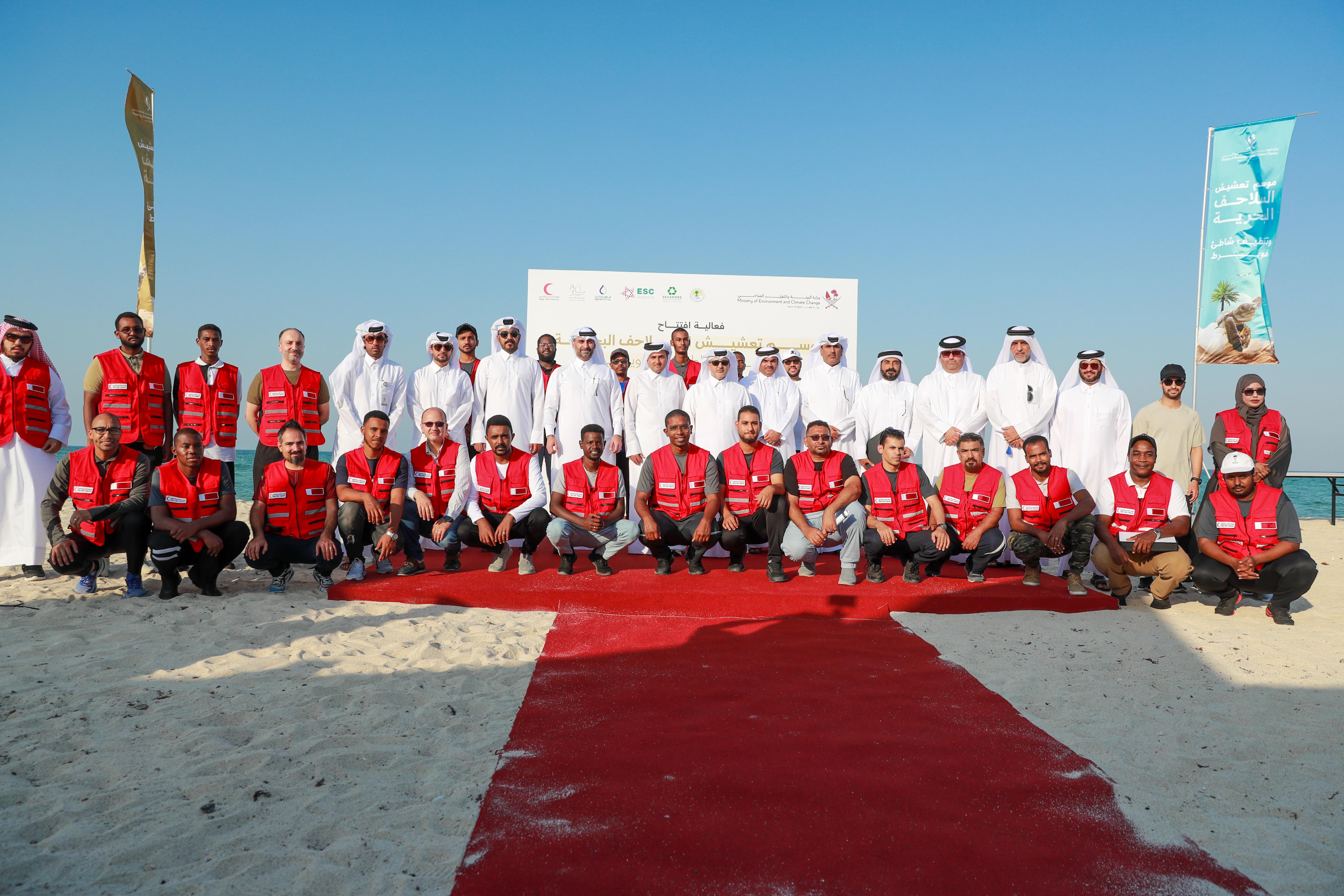
Speech of H.E. Minister of Environment and Climate Change to the Conference of the Parties (COP28)
His excellency Minister of Environment and Climate Change Sheikh Dr. Faleh bin Nasser bin Ahmed bin Ali Al Thani stressed that the State of Qatar has established and launched several projects and initiatives to reduce the impact of climate change, invest in clean energy and achieve energy efficiency, pointing to the progress made by the State of Qatar in reducing emissions from the energy and water sector.
He further indicated in his speech to the 28th Conference of the Parties to the United Nations Framework Convention on Climate Change (COP28), which is being held, that the Al Kharsaah Solar Power Plant is one of the important steps and prominent examples of Qatar’s interest in investing in projects aimed at reducing carbon emissions and preserving the environment, which covers an area of more than 10 km2, includes more than 1,800,000 solar panels, and provides the equivalent of 10% of the country’s electricity at peak times.
His excellency pointed out that the State of Qatar is now building two solar power plants in the industrial cities of Qatar Energy with a total capacity of 870 megawatts, and production is expected to begin by 2025, bringing the total production capacity to produce electricity from solar energy to about 1.7 gigawatts.
H.E. Sheikh Dr. Faleh Nasser Al Thani emphasized that Qatar places at the top of its priority issues related to environmental protection and addressing climate change in all fields, and continues to work to fulfill the commitments made under the Paris Agreement, and submitted its updated National Contributions Report, which highlights the level of ambitious achievements Qatar seeks to achieve, where environmental conservation and development is one of the four main pillars of the Qatar National Vision 2030.
He stated that: “Qatar National Strategy for Environment and Climate Change identifies a number of environmental priorities, including reducing greenhouse gas emissions by 25% by 2030, as part of efforts to contribute to achieving the 1.5 degrees Celsius goal. Qatar’s sovereign wealth fund is also an important driver of green investment, pointing out that Qatar attaches great importance to issues related to technology and innovation and its role in supporting mitigation and adaptation measures in various sectors, and in providing new solutions to the challenges posed by climate change, through global partnerships and supporting the establishment of technological research and development institutions.”.
Sheikh Dr. Faleh Nasser Al Thani explained that the State of Qatar has long contributed to providing global markets with clean energy sources through the production of highly efficient natural gas, which is an environmentally friendly energy source, and plays a vital role in the transition to a low-carbon economy. Furthermore, the State of Qatar has also launched an initiative to establish the Global Dryland Alliance (GDA), which is one of the international mechanisms aimed at confronting climate change and achieving food security.
His excellency highlighted that the State of Qatar’s hosting of Expo 2023 Doha, which specializes in horticulture, which is one of the largest international events this year, aims to promote innovations and combat desertification, and includes events to innovate solutions at the global level to the problems of desertification, climate change and sustainability challenges, and Qatar hosted more than ten years ago the 18th session of the Conference of the Parties to the United Nations Framework Convention on Climate Change, in 2012.
At the end of his speech, Minister of Environment and Climate Change stressed that the State of Qatar continues its pioneering role known for strengthening cooperation to confront climate change and engage in efforts at the international level for many years, noting that the holding of this conference and high-level participation in it is the best example of commitment to increasing momentum to find radical solutions to the climate crisis, whose effects our world continues to feel in all areas of life.




